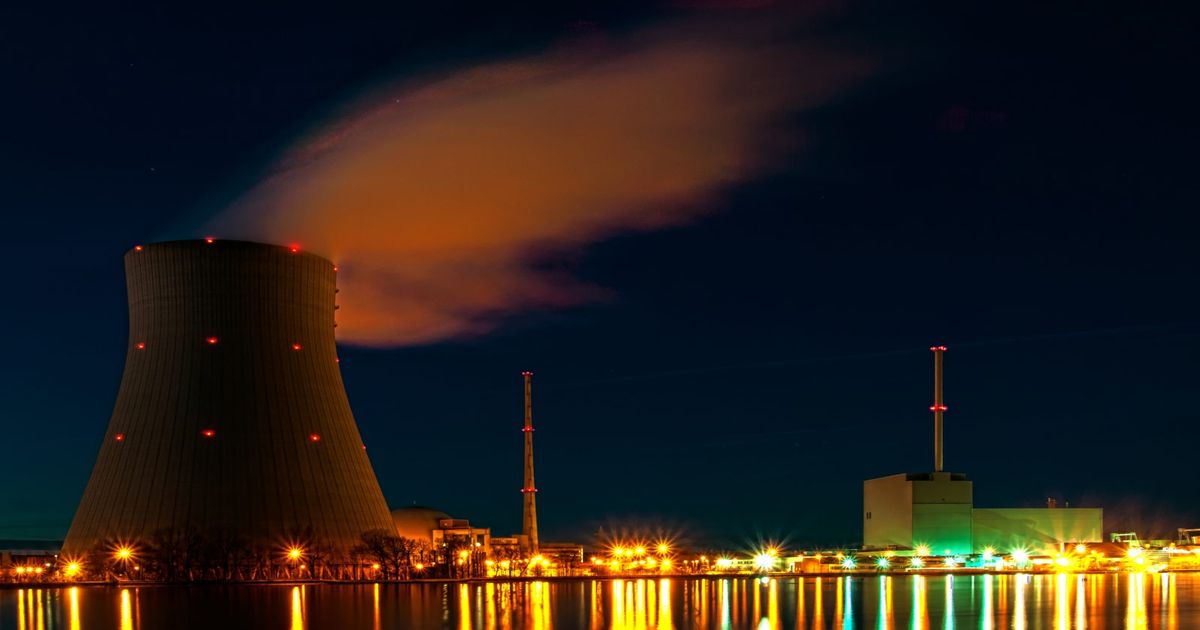
By Amber Afreen Abid 1 October 2021
The civil nuclear program comprised the major part of the nuclear program of Pakistan. Pakistan has always been cognizant of the use and benefits of nuclear technology in the civil sector. The use of nuclear technology for civil purposes entails the use in medicine, utilization in energy, agriculture, or dealing with climate change. It is contributing to various aspects, for the welfare of people, and ultimately in achieving sustainable development goals.
Pakistan Atomic Energy Commission (PAEC) was established in 1956, with the primary aim to utilize peaceful uses of nuclear energy in various civil sectors of Pakistan. In the 1970s, the first-ever nuclear power plant was established by PAEC in Karachi- named KANNUP, with a generation capacity of 135 MWe; it was also the first nuclear power plant in the underdeveloped or developing world. It was further followed by KANNU-II, and KANNUP-III, besides four nuclear power plants Chashma- CHASNUPP-I, CHASNUPP-II, CHASNUPP-III, and CHASNUPP-IV. Other power plants at Chashma and Muzaffargarh are under consideration to be built by PAEC. The Pakistan Atomic Energy Commission (PAEC) has increased efforts to run into the nuclear electricity generation target of 8,800 MW by the year 2030. It is a part of the comprehensive Energy Security Plan formulated in 2005. As stated in the Economic Survey 2019-20, the completion of the K-2/K-3 project will get the PAEC nearer to attaining this target.
One of the principal motivations behind Pakistan’s increasing reliance on nuclear energy seems to be worsening climatic conditions. Nuclear energy is pretty much within the means, clean and pleasant to the environment, thus turns out to be the best alternative for Pakistan’s energy requirements.
In the field of Agriculture, Pakistan has made remarkable improvements, utilizing nuclear energy, and working extensively on Biotechnology. PAEC is working efficiently to utilize nuclear technology in the agriculture sector, by introducing a variety of pest control technologies, plant nutrition, in collaboration with IAEA numerous institutes have been developed by PAEC, which includes the National Institute of Biotechnology and Genetic Engineering (NIBGE), Nuclear Institute of Agriculture and Biotechnology (NIAB), Nuclear Institute for Agriculture (NIA), Nuclear Institute for Food and Agriculture (NIFA); these institutes are continuously working to enhance the productivity of the agriculture sector in Pakistan. PAEC and its agriculture center also organize “Farmer’s Days” to create awareness among farmers, to educate them about the effectiveness of newly developed varieties of the crops and how the cultivation of such crops can benefit them and the country.
But this is not the only focus of the PAEC; it is also working in the field of nuclear and chemical sciences with a special focus on their application for peaceful uses of nuclear technology. The major research and development institute of PAEC is PINSTECH which is ensuring well-balanced research in the field of peaceful uses of nuclear technology to facilitate the needs of the future. Over the passage of time, PINSTECH has contributed in various dimensions of peaceful applications of nuclear technology in Pakistan to support the national interest of Pakistan and socio-economic development in the country. The Pakistan Research Reactor – I (PARR-I) is a 10 MW swimming pool type research reactor, Pakistan Research Reactor – II (PARR-II) is a 27 KW tank-in-pool type research reactor, which has promoted a greater degree of self-reliance.
Pakistan has over 40 years of history of operating nuclear power plants, and that too without a single incident of nuclear safety and security. The IAEA and other global nuclear watchdogs have praised Pakistan’s commitment to the safety and security of its nuclear power plants, on multiple occasions. Pakistan recently has presented its achievements in the peaceful uses of nuclear technology in front of the international community at the IAEA headquarters, Vienna, for the first time ever. The exhibition stands to vitrine Pakistan’s achievements in the peaceful aspects of nuclear technology on various grounds such as health, power generation, industry, agriculture, and environmental protection. Pakistan’s remarkable track record of the safety and security task of its nuclear energy programme is a clear portrayal of its national steadfastness and pledge towards effective implementation of stringent policies and global standards. The only thing that constrains Pakistan from a significant international contribution to peaceful nuclear cooperation is the double standards of various international nuclear cartels. Such kind policies needs to be changed to enable countries like Pakistan to realize their full potential for not only the furtherance of their people in various aspects but for all of humanity and nature.
